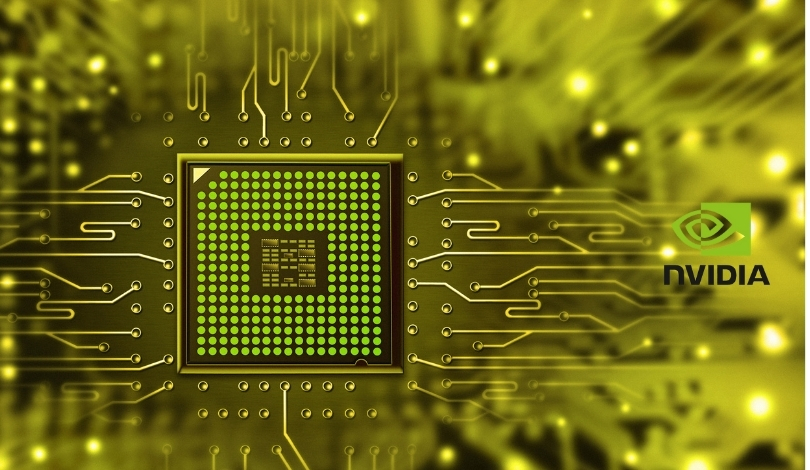Efforts to accelerate artificial intelligence infrastructure have surged in recent months, with Oracle taking a prominent role in a collaboration to deploy advanced Nvidia chips for a new data centre supporting OpenAI in Abilene, Texas. The scale of the agreement, reaching around $40 billion, signals how rapidly large tech firms are moving to address their AI compute needs. This decision reflects an ongoing trend where traditional cloud providers, chipmakers, and AI developers form new alliances in pursuit of the technological resources necessary for cutting-edge model training. Global ambitions are emerging as well, suggesting a broader shift in the landscape for AI data operations beyond the U.S.
Compared to older reports about AI data infrastructure projects, this initiative stands out for both its financial magnitude and the involvement of multiple players such as Oracle, OpenAI, SoftBank, and Nvidia. Previously, Microsoft’s partnership with OpenAI received attention, but those investments were smaller in scale and often focused on cloud credits rather than direct hardware procurement. The move from relying on established cloud providers to investing heavily in customized data centre solutions marks a strategic change in how AI research groups secure computing power. Additionally, announcements from companies like Amazon and Elon Musk’s projects have tended to focus on incremental expansion, whereas the Abilene plan sets a new standard in both size and financing.
Why Is Oracle Investing in Nvidia’s Latest Chips?
Oracle’s decision to allocate approximately $40 billion for Nvidia’s new GB200 chips represents a response to the escalating demand for efficient AI model training. These advanced processors are intended to support OpenAI’s computational initiatives by delivering substantial processing capacity, reinforcing the industry’s trend toward direct investment in specialized hardware. Oracle plans to lease computational capability derived from these chips to OpenAI, providing a business model that benefits both entities while aiming to meet the pressing needs of large-scale AI research.
How Will the Abilene Data Centre Operate?
Slated for completion next year, the Abilene data centre will offer 1.2 gigawatts of computing power and will include eight core buildings. Financing comes from a combination of contributions by Crusoe, Blue Owl Capital, and significant loans from JPMorgan, collectively raising $15 billion through a mix of debt and equity. Oracle, under a 15-year lease agreement, secures long-term access to the site’s infrastructure, while Stargate, the broader consortium, remains focused on extending its portfolio rather than direct funding of this particular project.
Does the Project Indicate a Major Strategic Shift?
This initiative signals a significant change in OpenAI’s strategy, moving away from a heavy reliance on Microsoft for cloud computing resources. Since most of Microsoft’s $14 billion investment came as cloud credits, OpenAI’s adoption of the dedicated Abilene facility illustrates a preference for greater autonomy in managing its model training workload. With Stargate aiming to raise up to $500 billion over several years for U.S. projects, and new plans emerging internationally such as a vast Abu Dhabi site, large-scale independent AI infrastructure seems set to expand further.
Funding for the Texas venture is supplemented by contributions from OpenAI, SoftBank, Oracle, and MGX of Abu Dhabi, with each holding an equity stake tailored to their commitment.
“The scale of our investment reflects a shift to stronger, more resilient AI capacity,” said an industry source familiar with the project’s planning.
The consortium model and cross-border ambitions reflect an evolving landscape in which AI developers seek alternatives to traditional cloud partnerships while ensuring robust access to computational resources.
Faced with competing expansions—such as “Colossus” by Elon Musk in Tennessee and large sites planned by Amazon—the Stargate project represents larger investments and greater ambition. Notably, Stargate’s latest Abu Dhabi announcement and SoftBank’s involvement highlight AI infrastructure’s growing global footprint. These trends suggest that rapid increases in AI hardware acquisitions are likely to fuel further innovation and challenge established norms for access and ownership of AI-specific compute.
Large-scale investments in AI hardware demonstrate that the industry is entering a phase where securing dedicated computing resources becomes critical for continued model advancement. Organizations should monitor both technological developments and strategic partnerships, as control over computational assets may shape future opportunities for innovation and collaboration. Those involved in AI deployment or development might benefit from proactively assessing emerging infrastructure options and distribution models as market dynamics evolve.










